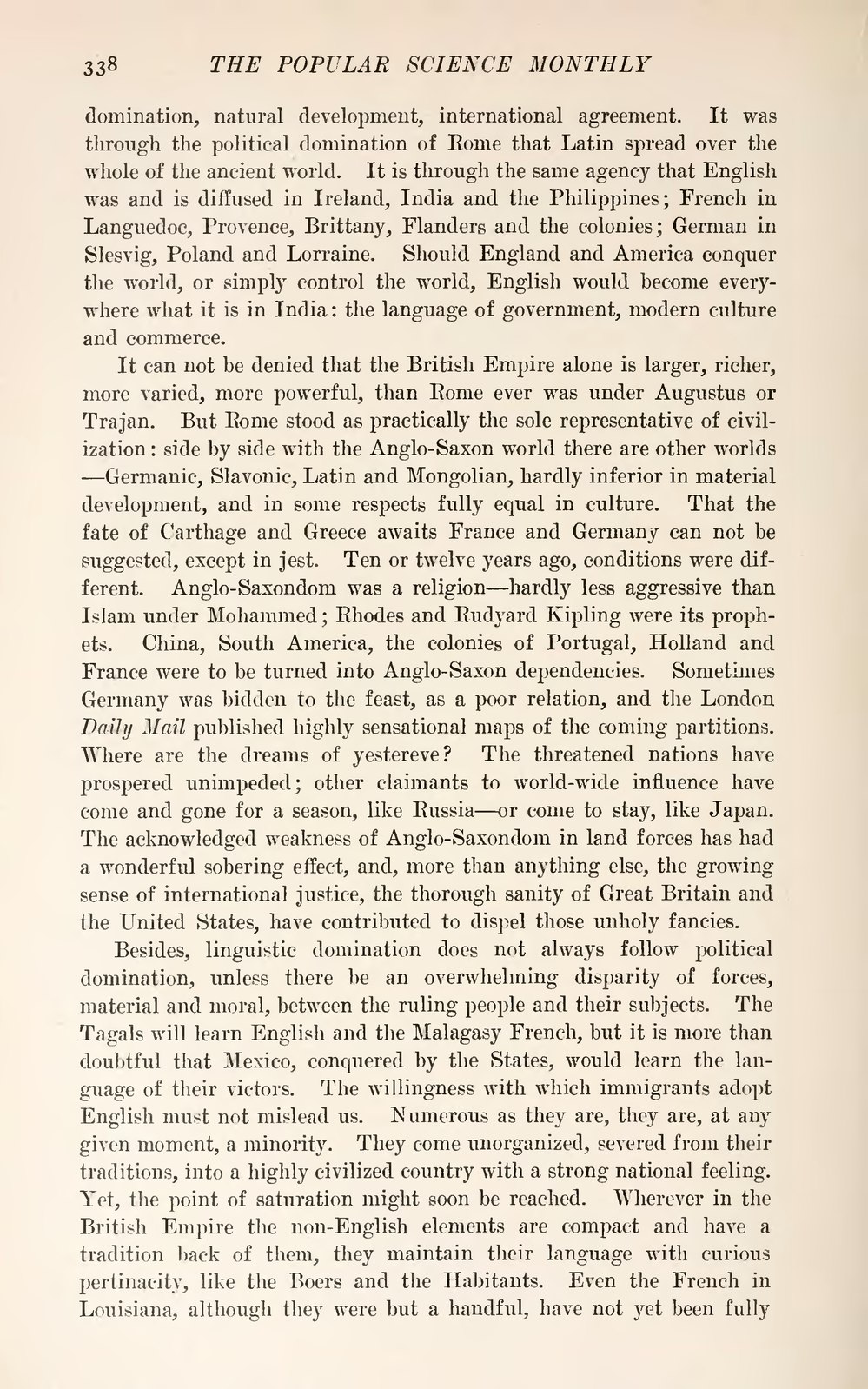domination, natural development, international agreement. It was through the political domination of Rome that Latin spread over the whole of the ancient world. It is through the same agency that English was and is diffused in Ireland, India and the Philippines; French in Languedoc, Provence, Brittany, Flanders and the colonies; German in Slesvig, Poland and Lorraine. Should England and America conquer the world, or simply control the world, English would become everywhere what it is in India: the language of government, modern culture and commerce.
It can not be denied that the British Empire alone is larger, richer, more varied, more powerful, than Rome ever was under Augustus or Trajan. But Rome stood as practically the sole representative of civilization: side by side with the Anglo-Saxon world there are other worlds—Germanic, Slavonic, Latin and Mongolian, hardly inferior in material development, and in some respects fully equal in culture. That the fate of Carthage and Greece awaits France and Germany can not be suggested, except in jest. Ten or twelve years ago, conditions were different. Anglo-Saxondom was a religion—hardly less aggressive than Islam under Mohammed; Rhodes and Rudyard Kipling were its prophets. China, South America, the colonies of Portugal, Holland and France were to be turned into Anglo-Saxon dependencies. Sometimes Germany was bidden to the feast, as a poor relation, and the London Daily Mail published highly sensational maps of the coming partitions. Where are the dreams of yestereve? The threatened nations have prospered unimpeded; other claimants to world-wide influence have come and gone for a season, like Russia—or come to stay, like Japan. The acknowledged weakness of Anglo-Saxondom in land forces has had a wonderful sobering effect, and, more than anything else, the growing sense of international justice, the thorough sanity of Great Britain and the United States, have contributed to dispel those unholy fancies.
Besides, linguistic domination does not always follow political domination, unless there be an overwhelming disparity of forces, material and moral, between the ruling people and their subjects. The Tagals will learn English and the Malagasy French, but it is more than doubtful that Mexico, conquered by the States, would learn the language of their victors. The willingness with which immigrants adopt English must not mislead us. Numerous as they are, they are, at any given moment, a minority. They come unorganized, severed from their traditions, into a highly civilized country with a strong national feeling. Yet, the point of saturation might soon be reached. Wherever in the British Empire the non-English elements are compact and have a tradition back of them, they maintain their language with curious pertinacity, like the Boers and the Habitants. Even the French in Louisiana, although they were but a handful, have not yet been fully

